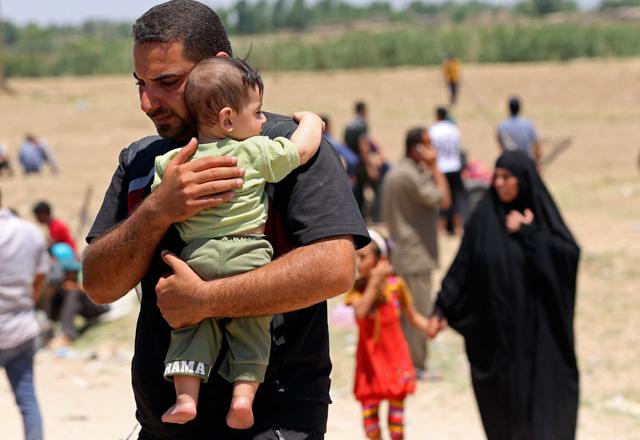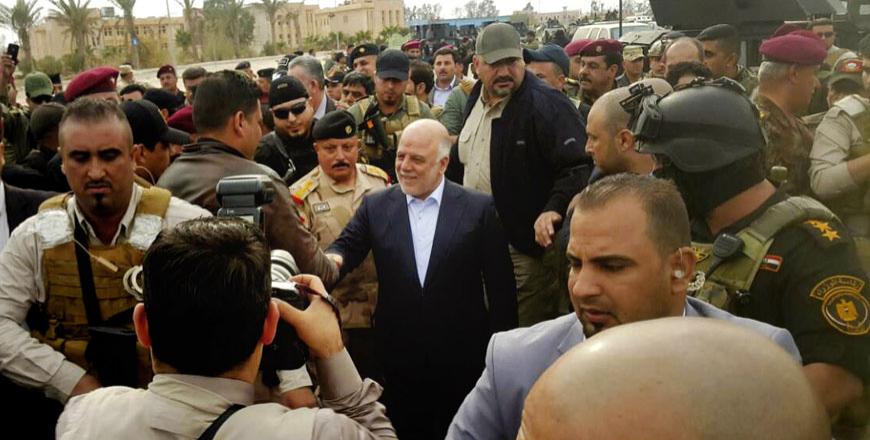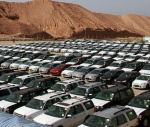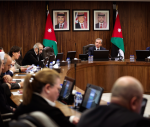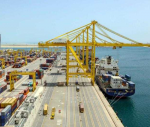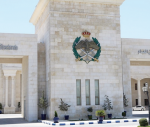You are here
‘Iraqi city Ramadi falls to Daesh group’
By AP - May 17,2015 - Last updated at May 17,2015
BAGHDAD — Daesh terror group seized control of the city of Ramadi on Sunday, sending Iraqi forces racing out of the city in a major loss despite the support of US-led air strikes targeting the extremists.
Online video showed Humvees, trucks and other equipment purportedly speeding out of Ramadi, with some soldiers gripping onto their sides.
Prime Minister Haider Al Abadi ordered security forces not to abandon their posts across Anbar province, apparently fearing the extremists could capture the entirety of the vast Sunni province that saw intense fighting after the 2003 US-led invasion.
"Ramadi has fallen," said Muhannad Haimour, a spokesperson for the governor of Anbar province. "The city was completely taken. ... It was a gradual deterioration. The military is fleeing."
Earlier Sunday, Abadi also ordered Shiite militias to prepare to go into the Sunni-dominated Anbar province.
The final push by the terrorists began earlier Sunday, when police and army officials said four nearly simultaneous bombings targeted police officers defending the Malaab district in southern Ramadi, killing 10 and wounding 15.
Among the dead was Col. Muthana Jabri, the chief of the Malaab police station, they said.
Later on, police said three suicide bombers drove their explosive-laden cars into the gate of the Anbar Operation Command, the military headquarters for the province, killing five soldiers and wounding 12.
Fierce clashes erupted between security forces and Daesh militants following the attacks. Daesh militants later seized Malaab after government forces withdrew, with the militants saying they now held the military headquarters.
A police officer who was in Malaab said retreating forces left behind about 30 army vehicles and weapons that included artillery and assault rifles. He said some two dozen police officers also went missing during the fighting.
All the officials spoke on condition of anonymity as they weren’t authorised to talk to journalists.
On a militant website frequented by Daesh members, a message from the group claimed its fighters held the eighth brigade army base, as well as tanks and missile launchers left behind by fleeing soldiers.
The message, while it could not be independently verified by The Associated Press, was similar to others released by the terror group and was spread online by known supporters of the extremists.
The new setback came only a day after Baghdad’s decision to send reinforcements to help its battered forces in Ramadi.
Abadi’s comments were carried on state television, which did not elaborate on the situation in Ramadi or elsewhere in Anbar province. Iraqi warplanes also launched air strikes on Daesh positions inside Ramadi on Sunday, the Iraqi defence ministry said, without elaborating.
Later, the military issued a statement also calling on its forces not to abandon Anbar province.
“Victory will be on the side of Iraq because Iraq is defending its freedom and dignity,” the military said. It did not offer any details about the ongoing fighting.
Last week, the militants swept through Ramadi, seizing the main government headquarters and other key parts of the city. Previous estimates suggested Daesh held at least 65 per cent of the vast Anbar province.
Backed by US-led air strikes, Iraqi forces and Kurdish fighters have made gains against Daesh, including capturing the northern city of Tikrit.
But progress has been slow in Anbar, a Sunni province where anger at the Shiite-led government runs deep and where US forces struggled for years to beat back a potent insurgency.
US troops were able to improve security in the province starting in 2006 when powerful tribes and former militants turned against Al Qaeda in Iraq, a precursor to Daesh, and allied with the Americans.
But the so-called Sunni awakening movement waned in the years after US troops withdrew at the end of 2011, with the fighters complaining of neglect and distrust from the Shiite-led government in Baghdad.
The US-led coalition said Sunday it conducted seven air strikes in Ramadi in the last 24 hours, as well as three in Fallujah.
“It is a fluid and contested battlefield,” said Col. Steve Warren, a Pentagon spokesperson. “We are supporting [the Iraqis] with air power.”
Related Articles
BAGHDAD — Iraq has for the first time deployed troops trained by the US-led coalition in their campaign to retake the city of Ramadi from Da
Iraq's military has dispatched reinforcements to help its battered forces in Ramadi, a city now largely held by the Deash terror group after its militants swept across it the day before, an Iraqi military spokesman said Saturday.
BAGHDAD — Tribal fighters deployed in Ramadi Tuesday, a step towards providing the reconquered Iraqi city with a force both capable of preve


